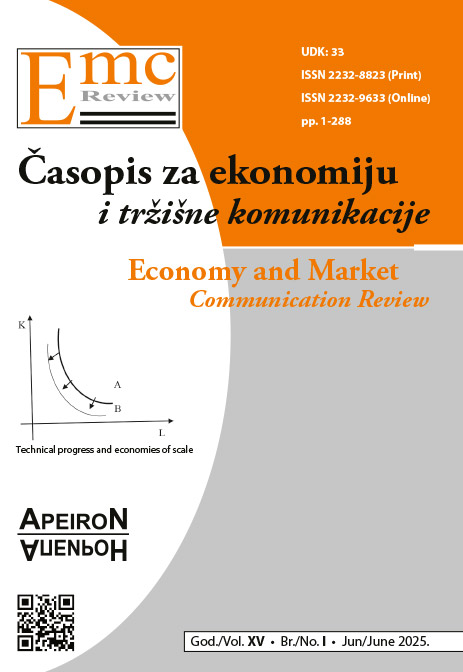PHILLIPS CURVE AND OKUN’S LAW IN TRANSITION COUNTRIES WITH MODERATE AND INCREASED INFLATION
DOI:
https://doi.org/10.7251/EMC2501159VKeywords:
economic growth, Phillips curve, Okun’s law, transition countriesAbstract
In this research, the economic growth of individual national economies, price stability and the level of unemployment in transition countries were observed, using data from the official institutions of three countries (Bosnia and Herzegovina, Republic of Croatia and Republic of Serbia), before and after the sudden general increase in prices from 2021. and now, for the period 2015-2024, with the aim of searching for clear causalities between them. Fundamental research conducted in the world during the 60s of the last century, which resulted in the creation of macroeconomic postulates such as the Phillips curve and Okun’s law, are subject to review - considering the many global changes that occurred after them. Using data from official state institutions, methods of statistical data processing in the SPSS package, methods of analysis and synthesis, induction and deduction, and the general method of cognition, it was observed that the Phillips curve obtained for each of the mentioned national economy does not show the existence of dependence of variables, and Okun’s law did not show credibility. Greater causalities can be observed in more economically developed countries within the framework of transition countries, in this research in the Republic of Croatia. Also, the strong influence of external factors on national economies has weakened the management capabilities of states through monetary and fiscal measures.
